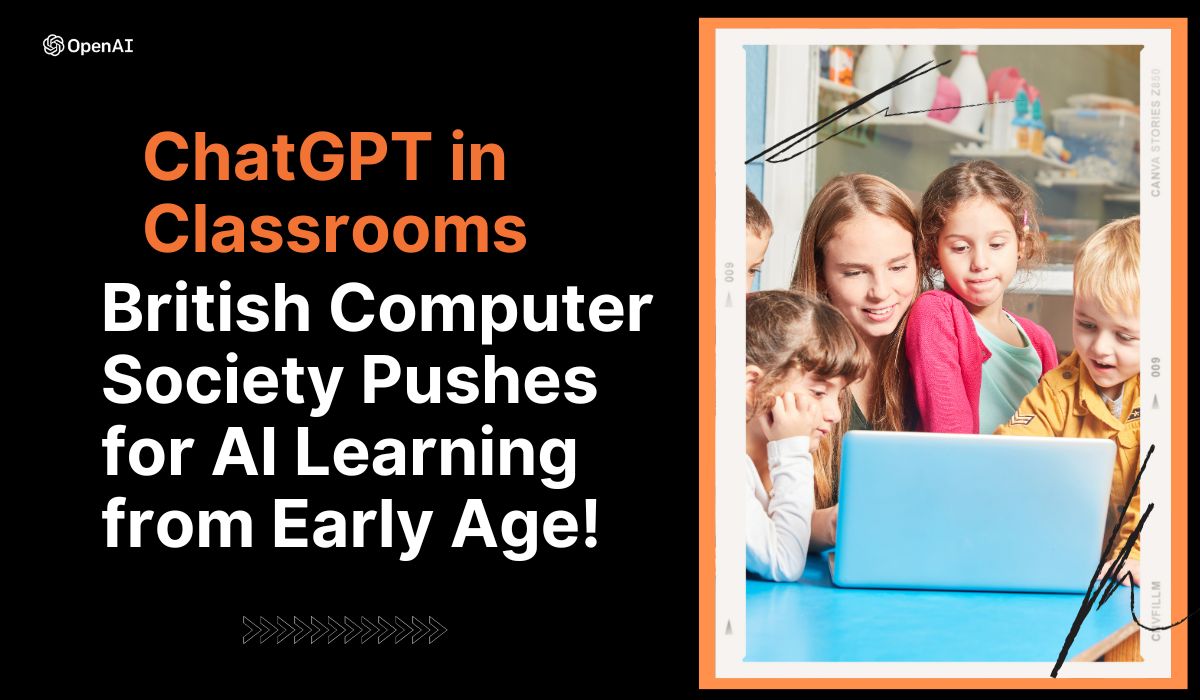
In a bid to prepare the younger generation for the evolving job market, schools have received a compelling call to commence AI education from the age of 11. The British Computer Society (BCS), The Chartered Institute for IT, urges a shift from the traditional approach, proposing that all children should be equipped with the skills to navigate tools like ChatGPT before reaching GCSE computer science courses.
The BCS advocates the introduction of a digital literacy qualification with a strong emphasis on artificial intelligence and its practical applications. Recognizing the transformative impact of AI on various industries, the professional body stresses the need for an immediate overhaul of digital literacy options to ensure that UK's children stay ahead in the ever-changing technological landscape.
Julia Adamson MBE, Director of Education at the institute, emphasizes the importance of modern digital skills, including understanding how AI chatbots can benefit individuals in their personal and professional lives. She points out the existing gap in the current GCSE curriculum, which tends to be highly theoretical and does not cover essential aspects of digital literacy.
The institute recommends the integration of AI understanding as a key component in teacher training and headteacher qualifications. Ms. Adamson anticipates a future where a broad spectrum of fields, from marketing to law, will demand a solid knowledge of generative AI, stressing the imperative for schools to adapt their curriculum accordingly.
Research from education company Pearson underscores the impact of AI on the workforce, highlighting that office and administrative jobs, involving repetitive tasks like scheduling appointments or answering calls, might be among the most affected. Ms. Adamson warns that AI, particularly generative AI models like ChatGPT, is advancing rapidly, necessitating swift adjustments in classroom strategies to keep pace.
As the education landscape grapples with the rapid evolution of AI, concerns have been raised by headteachers earlier this year, expressing the need for more guidance on adapting classrooms to the swift development of large language models like OpenAI's ChatGPT. Some institutions in other countries have already taken steps to ban these models, emphasizing the urgency for comprehensive and proactive AI education in schools.